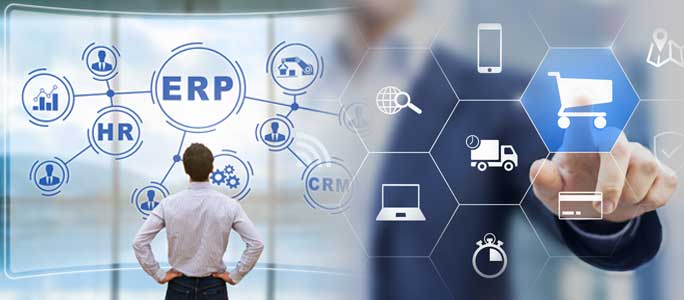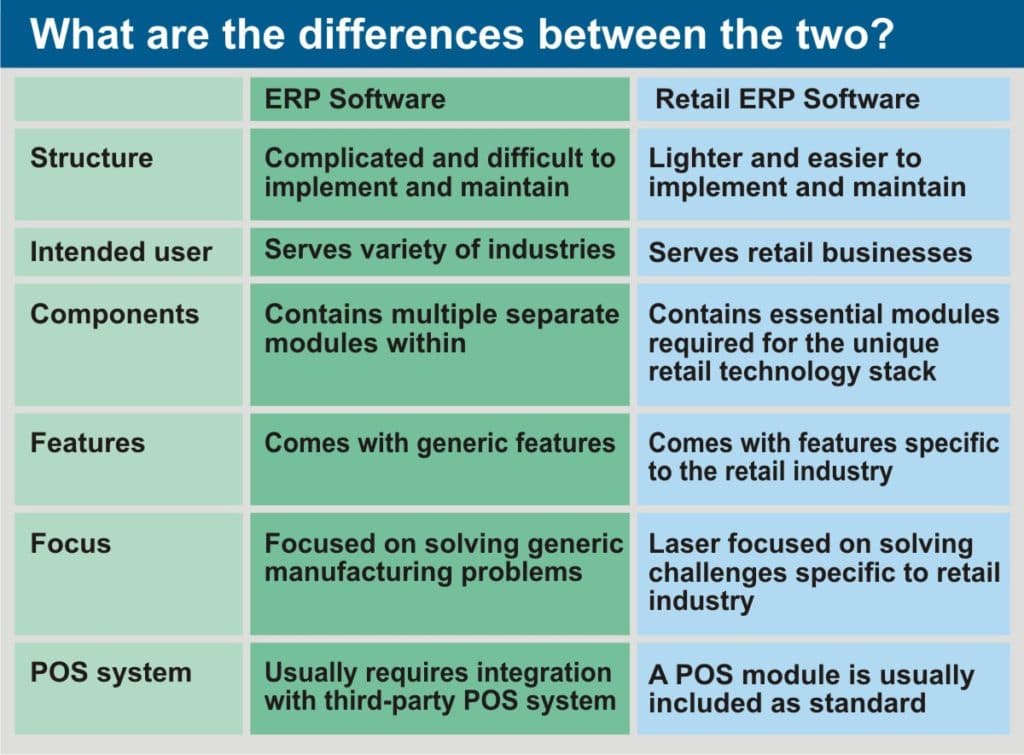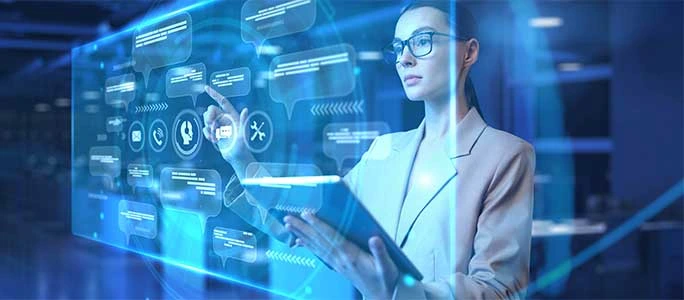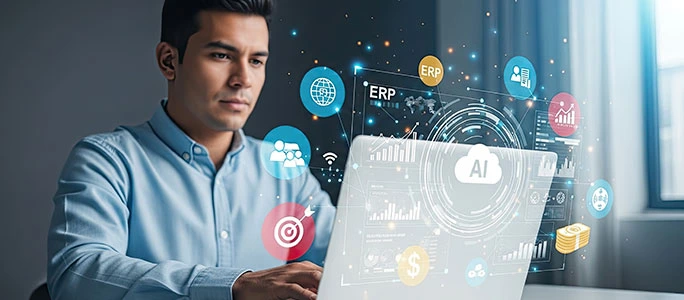
Organizations of all types and sizes require the right business management tools to run their operations smoothly. A traditional enterprise resource planning (ERP) system and retail ERP system are just two of the many such tools available in the market. What value do these tools offer, and how actually do they differ from each other? This blog explains.
Overview
Running a business is a tough job. Running it without the right tools is even tougher.
In the absence of the right business management tools, not only the organizations struggle to go through their daily operations, but also end up conceding the advantage to the competition, which gains an upper hand in the cut-throat fight.
The smart organizations realize that in order to stay ahead of the competition, they can’t afford any slipups. Hence, they turn towards technology, and look to add the right tools that can help them achieve a very strong position in the marketplace.
There are a number of business management tools available in the market that help make running a business simpler. But for the sake of this blog’s scope, we will stick only to an ERP software, and a retail management software.
Let’s first get to know the two software one by one, before going on to understand the differences between them.
What is a traditional ERP software?
A traditional ERP system is nothing but the glue that binds together the several different functions of a business organization. It connects the different departments of a business, allowing the users to access the business data through one application with one interface.
An ERP can be defined as a business management software that comes with integrated applications which allow an organization to collect, store, manage and interpret data from their different business activities, thus enabling business’ overall smooth functioning.
In case of a traditional ERP software, the database invariably resides on an onsite server and hardware. It involves significant upfront investment, and is generally managed by the IT staff of the organization which has implemented it.
The must-have components of a traditional ERP software for process manufacturing businesses include:
- Formulation Management
- Purchase Management
- Laboratory Management
- Sales Management
- Cost Analysis
- Quality Control
- Regulatory Compliance
- Business Intelligence
- Inventory Management
- MPS/MRP
- Production Management
- CRM
What is a retail ERP software?
Talking specifically about the retail businesses, running them is a lot more complex, as there are plenty of moving parts involved in their day to day operations.
The businesses need to keep an eye on the stock, manage their sales, finances, different pricing, discounts, and even ensure that the customers are satisfied.
In order to stay ahead of the curve, retail businesses look to find ways to streamline their processes and become more efficient.
The best way of doing it is by implementing a retail ERP. Now that you know what an ERP software is, it becomes fairly easy to understand what an ERP software for retail management is.
A retail ERP software is actually an ERP software that’s built specifically to serve the exclusive needs of the retail industry, and comes equipped with functionalities related to the retail industry.
It allows the retailers to get rid of the error-prone manual methods, and be on top of their business. The must-have components of a good ERP software for retail management include:
- Customer relationship management (CRM)
- Demand planning and forecasting
- Multi-location and real-time inventory management
- Store and warehouse operations
- Multichannel order management
- Purchase and vendor management
- Employee management
- Sales reporting and analytics
- Point of sale (POS) system
- Integrated Accounting
What are the differences between the two?

There are a few areas where a traditional ERP software differs from a retail ERP software.
To begin with, traditional ERP software, that serve a variety of industries, can often be complicated, and implementing and maintaining them can be a complex job for the organizations.
This is predominantly because they usually come with a host of generic modules that are built keeping the needs of the varied businesses in mind, and include elements that are completely redundant when it comes to retail.
This forces the businesses to put in additional work so as to get those modules to synchronize and communicate with one another successfully, which in turn adds to the complexity.
The traditional ERP software also offers generic features that focus on solving the generic business problems.
In most cases, an ERP software would require integration to a third-party POS system in order to achieve the point-of-sale functionality to manage in-store sales.
This further complicates its implementation plan, and adds significant risk to the exchange of data between the two systems.
Retail ERP systems – tailor-made for retailers
A retail ERP software is an ERP that’s designed keeping the most unique requirements of the retailers in mind.
Hence, it comes only with the modules that are required by the retail businesses, and doesn’t include the ones such as bill of materials, that aren’t required by the retailers.
This makes retail ERP systems lighter and easier to implement as well as maintain.
Also, retail ERP systems offer features that support the business processes specific to the retail industry. Needless to say, such software are focused on solving the challenges that the retail industry operators face.
Lastly, a point-of-sale functionality is usually a given with a retail management system, and often comes with it by default. This allows the retail businesses to keep the risk of having siloed data, and possible roadblocks to delivering an exceptional experience to the customer, at bay.
In sum
Both ERP software and Retail ERP serve distinct business purposes. As a business organization, it is imperative for you to understand which one suits your needs better.
If you’re operating in any industry other than retail, an ERP software can be a good fit to your business.
But if yours is a retail business having specific objectives such as offering great omnichannel experience to the customers, increasing sales, and having visibility into inventory turnover and opportunities, then you surely need a retail ERP system to drive your business.
Whichever software you need, we at BatchMaster can help with our extensive experience of serving diverse businesses successfully for over 30 years with our wide range of software solutions, including ERP solutions as well as retail management software. Get in touch with our experts for a no-obligation consultation, or for scheduling a demo, today.




















